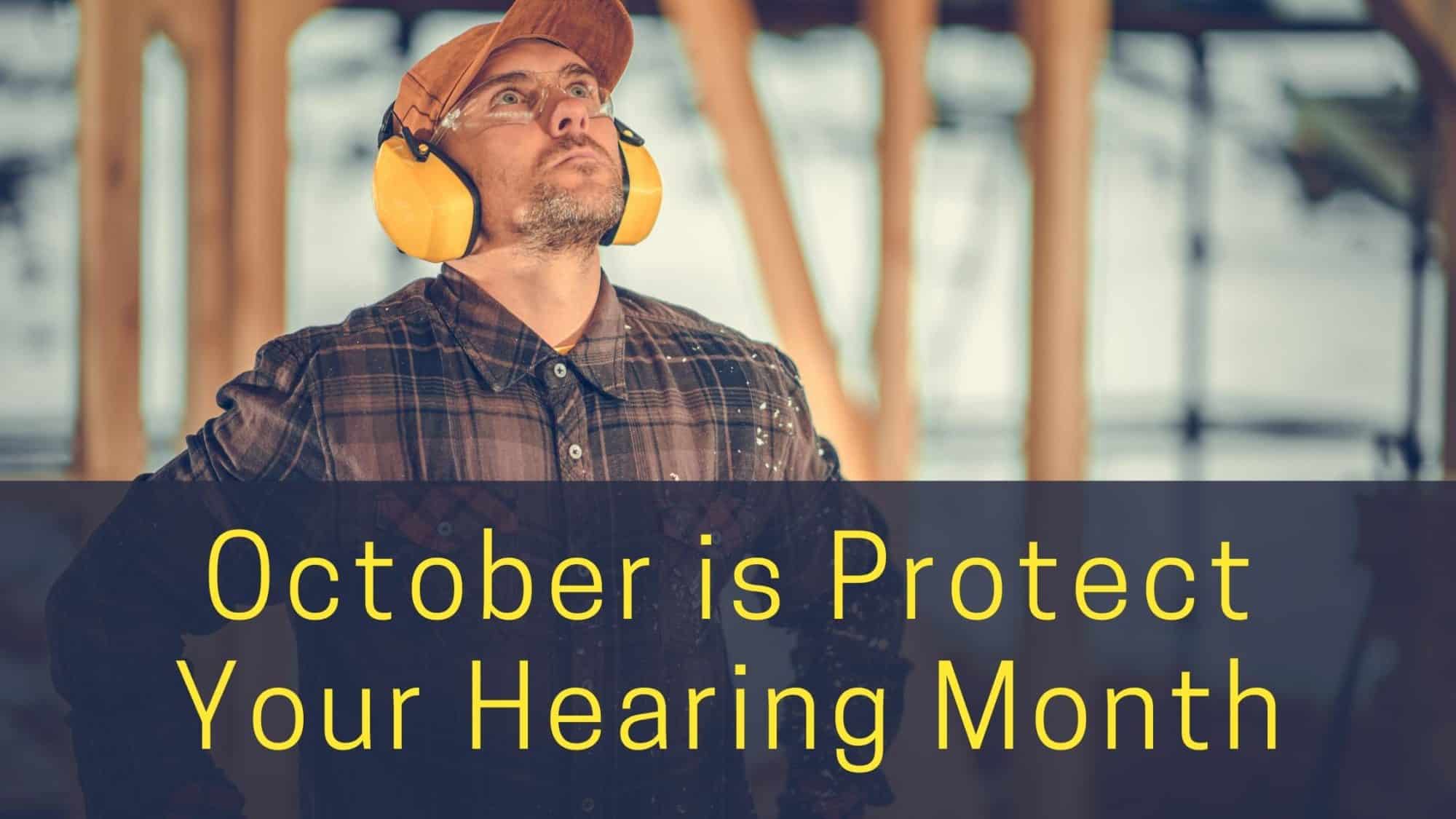- The Connection Between Hearing Loss and Dementia - July 30, 2024
- The Advantages of Rechargeable Hearing Aids - July 16, 2024
- How to Enjoy Music Festivals While Protecting Your Hearing - July 3, 2024
While our thoughts naturally turn toward the coming winter months, set aside a little time to think about your hearing health. October is Protect Your Hearing Month and here is some information on hearing loss and some actions you can take right now to take steps towards a lifetime of healthier hearing.
The importance of hearing health
Hearing loss is one of the leading chronic health conditions in the United States. According to the National Institutes of Health, 14% of Americans exhibit signs of hearing loss. A majority of people surveyed by the American Speech-Language-Hearing Association in March 2021 reported that hearing health is important for a good quality of life experience. But culturally, staying on top of our hearing health remains a low priority. In that same survey, 60% of respondents had undergone a vision exam within the past five years. And yet, only two in ten reported having their hearing examined in the same period of time.
How does hearing loss work?
It’s true that our hearing naturally decays as we age. Once you reach the age of 65, one-third of your peers will experience hearing loss. That number climbs even higher (up to half) once you reach 85. While aging is something we can’t prevent — but don’t worry, someone’s working on it — noise-induced hearing loss is easily preventable if you are aware of the danger.
Both dangerous noise and the aging process can damage the fine cells of the inner ear. These cells are integral to the hearing process because they collect the sound information from the external world and transmit it to the brain via the auditory nerve. Once the sound information reaches the brain’s processing centers, it is translated into noise, language and comprehension. If these cells are damaged, they are not repaired or regenerated. Instead, we are born with a finite number. As these cells become impaired, so does the amount of sound information that is captured and transmitted to the brain. What we experience is a sense of hearing loss.
What noise is too loud?
Our ears evolved in a much quieter time. Our world today is much noisier, thanks in part to the industrial revolution. Loud machinery from factories can be harmful to workers and even neighbors. Our commonplace listening habits can also put our hearing health in danger, by exposing us to dangerous volumes through our earbuds and headphones.
We measure sound in decibels and it’s widely agreed upon that noise over 85 decibels can cause noise-induced hearing loss. To put that into perspective, a conversation is around 60 decibels, a rock concert can clock in at 120 decibels and a noisy restaurant at peak hours can be as loud as 90 decibels.
Time is important
The duration you are exposed to noise over 85 decibels matters. For workers, the Occupational Health and Safety Association (OSHA) begins to require noise reduction measures if sound reaches over 85 decibels over eight hours. Hearing health experts agree that any sound exposure over 100 decibels should be kept under 15 minutes. Extremely loud noise, like an explosion or accident, can cause noise-induced hearing loss in an instant.
5 ways to protect your hearing
Check in on your volumes
We are plugged into headphones and earbuds more than ever before and so we can’t yet determine what effect that will have on our hearing in the long term. That said, earbuds can reach between 85 and 110 decibels at high volume. If you are maxing out your volume, it’s safe to say that noise-induced hearing loss is on the horizon.
Smartphones often have apps that monitor your volume level. For instance, on an iphone you can go to the ‘Health’ app for a quick readout of your usage. If you don’t have that capability on your device, put your listening volume at your normal level and hold your earbuds about a foot in front of you. If you can still hear the audio clearly, then your volume is dangerously loud. As a good rule, remember to keep your sound levels at about two thirds of max volume to protect your hearing health.
Invest in hearing protection
If you’re a person who works in a noisy environment or engages in loud recreational activities, like snowmobiling or shooting, you should absolutely invest in noise protection. Our audiologists can recommend quality hearing protection that is suitable for your unique lifestyle. This is also applicable if you’re a music lover who enjoys live shows. Even symphonies can reach crescendos of up to 100 decibels, so some type of earplug can offer you a greater level of protection.
Schedule a hearing consultation
Begin to build a habit of checking in on your hearing health. Schedule a hearing consultation today with our team. We are ready and willing to perform a quick and easy hearing exam, and we’ll guide you through a greater understanding of your current hearing health. If you have experienced hearing loss, we have an array of proven solutions that can enhance your listening life and ultimately, bring you a greater quality of life overall.

